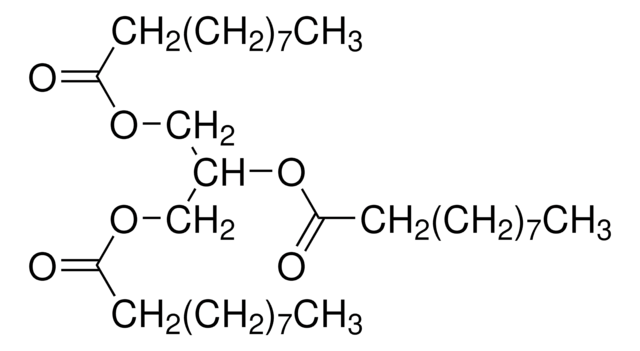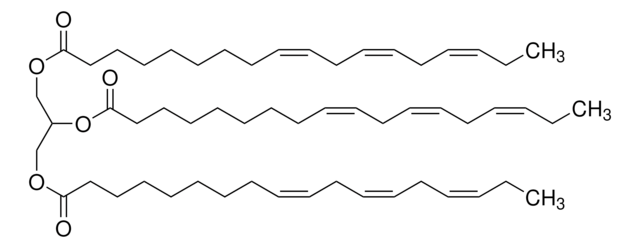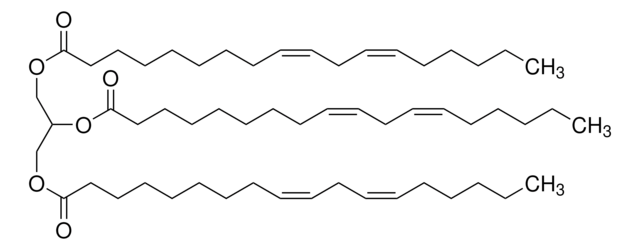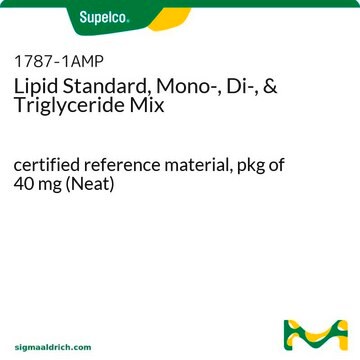NIST1595
Tripalmitin
NIST® SRM® 1595
Synonym(s):
Tripalmitin, 1,2,3-Propanetriol tris(hexadecanoate), Glyceryl tripalmitate
About This Item
Recommended Products
grade
certified reference material
Quality Level
packaging
pkg of 2 g
manufacturer/tradename
NIST®
mp
66-67 °C (lit.)
format
neat
SMILES string
CCCCCCCCCCCCCCCC(=O)OCC(COC(=O)CCCCCCCCCCCCCCC)OC(=O)CCCCCCCCCCCCCCC
InChI
1S/C51H98O6/c1-4-7-10-13-16-19-22-25-28-31-34-37-40-43-49(52)55-46-48(57-51(54)45-42-39-36-33-30-27-24-21-18-15-12-9-6-3)47-56-50(53)44-41-38-35-32-29-26-23-20-17-14-11-8-5-2/h48H,4-47H2,1-3H3
InChI key
PVNIQBQSYATKKL-UHFFFAOYSA-N
Looking for similar products? Visit Product Comparison Guide
General description
Other Notes
Tripalmitin
Reference/Informational value is provided for the following analytes.
Unknown glyceride, Methanol (CH3OH), Insoluble matter, Residue on ignition, Carbon (C), Hydrogen (H)
See certificate for values and more details at nist.gov/SRM.
Legal Information
Storage Class Code
11 - Combustible Solids
WGK
WGK 1
Choose from one of the most recent versions:
Certificates of Analysis (COA)
It looks like we've run into a problem, but you can still download Certificates of Analysis from our Documents section.
If you need assistance, please contact Customer Support.
Already Own This Product?
Find documentation for the products that you have recently purchased in the Document Library.
Customers Also Viewed
Our team of scientists has experience in all areas of research including Life Science, Material Science, Chemical Synthesis, Chromatography, Analytical and many others.
Contact Technical Service








